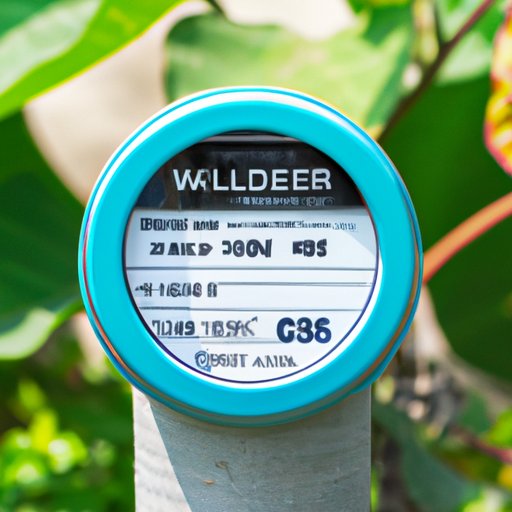I. Introduction
Are you tired of seeing a high water bill every month? It can be frustrating to discover that your bill is much higher than you anticipated. The good news is that there are many reasons why your water bill might be high, and most of them are easily fixable. In this article, we will explore the common causes of high water bills and give some tips to help you lower yours.
II. Possible Causes of High Water Bill: Top Reasons Explained
There are numerous reasons why your water bill might be high. One of the most common is leaks, either visible or hidden. Another reason could be inefficient use of water. The first step to lowering your water bill is to identify the cause of the problem.
If you suspect a leak, try to locate it as soon as possible. It might be an easy fix like replacing a washer or tightening a connection. Water leaks can also occur in hidden pipes, and in such cases, it might not be immediately visible. High water usage could also be due to inefficient water use and this could be as simple as reducing the time of your showers or using a watering can instead of a hosepipe to water your plants. Identifying the cause of the high water bill is the essential first step to reducing your water usage.
III. Hidden Leaks: The Silent Culprit Behind High Water Bills
Hidden leaks are a particular problem and can remain undetected for a long time. If you suspect you have a leak, it is essential to take action fast. One way to detect a hidden water leak is to read your water meter before and after a two-hour period when you’re not using any water. If the meter readings differ, you might have a hidden leak. Essentially, you would have used water but are not aware of it.
The good news is that most leaks, once detected, are often easy to fix. Some leaks may require the attention of a professional plumber who can fix the issue permanently.
IV. Check Your Meter: Tips to Detect Water Usage Problems
Your water meter is one of the essential tools that you can use to detect water problems. When you are trying to locate the cause of high water usage or a high water bill, your meter should be your first stop. The meter shows how much water you’ve used during a certain period of time. To check for water usage problems, start by turning off all the water in your house. Check the meter after a few minutes, and if there’s still a reading, you might have a significant leak that requires attention.
V. How Much Water Do You Really Need? Learn to Save and Cut Costs
Reducing water usage in your home is an essential step towards lowering your water bill. Many daily activities contribute to the total amount of water that we use and often more than we need. Simple changes like installing low-flow showerheads, using a broom instead of a hosepipe to clean your driveway, and fixing leaky faucets can make a significant difference. If you’re not sure how much water you’re using, consider using a water usage monitor to track water usage in your home. It might be scary to see the results at first, but it’s an excellent way to identify opportunities to reduce your water bill.
VI. Old vs. New: Upgrading Your Appliances to Reduce Water Bills
The age of your appliances could be contributing to a high water bill. Old washing machines, dishwashers, and toilets can use much more water than newer appliances. If upgrading large appliances is not an option, there are other ways to make them operate more efficiently for instance, using an aerator on your faucets to reduce water flow. Also, check your toilet for leaks and ensure that the flush mechanism is working correctly.
VII. Strategic Landscaping: Tips to Design a Water-Efficient Garden
If you have a garden, landscaping can also contribute to a higher water bill. Planting flowers, shrubs, and trees that require less water can save water and cut costs. Consider the use of mulch or compost to reduce evaporation. If you have a lawn, reducing the size by adding flower beds or vegetable gardens can push down the amount of water used to keep the grass hydrated. Watering at the right time of day, preferably early in the morning or late in the evening, can also help reduce water loss to evaporation.
VIII. Understanding Water Rates: How to Navigate Your Water Bill Charges
It’s also important to understand how water rates are calculated and how they might affect your bill. Some water suppliers have seasonal rates, and others may charge more based on usage. Understanding the various charges will help you identify areas where you may be able to cut costs, such as reducing your usage during peak charging periods.
IX. Conclusion
In conclusion, it can be frustrating to see a high water bill every month. However, knowing the causes of high water bills and identifying ways to reduce usage can help lower your bill. From hidden leaks to upgrading appliances and designing your garden more sustainably, there are many ways to reduce the amount of water you use and save money.
Take steps now to identify the cause of the issue and take action to reduce your usage. Not only will you see a lower water bill but you’ll also be doing your bit for the planet by conserving this precious resource.
